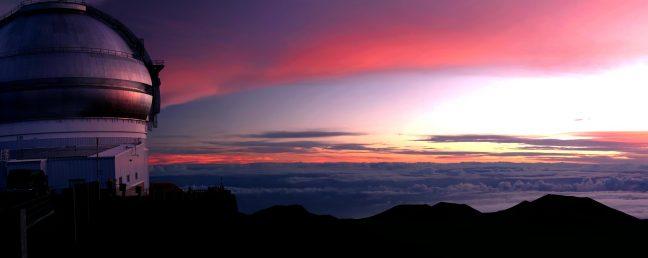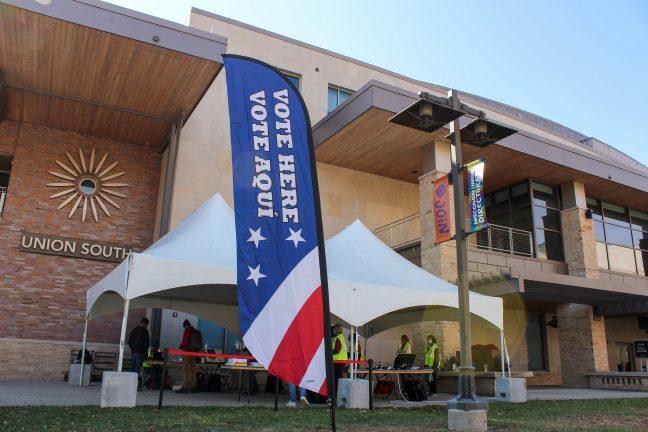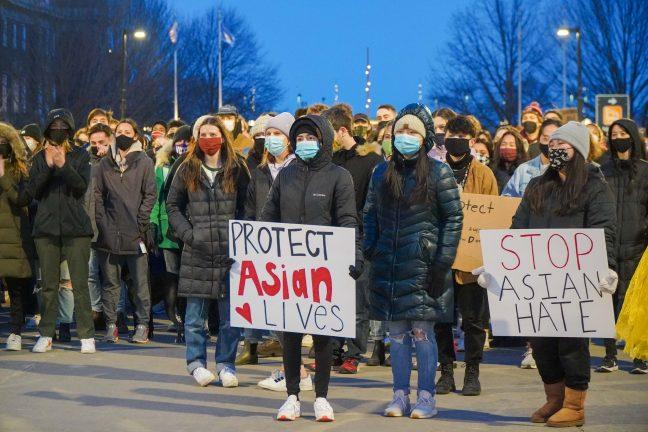The University of Wisconsin promotes itself as an institution dedicated to diverse learning styles and perspectives, including a commitment to environmental stewardship and sustainability.
But the complicity of the UW System in devaluing Indigenous knowledge and land rights through its support of the proposed Thirty Meter Telescope International Observatory Project on Hawaii’s Big Island, proves otherwise.
UW is a founding member of the Association of Universities for Research in Astronomy, a large consortium involved in the development of this 18-story telescope.
The construction spot is located on Mauna Kea — a sacred mountain to Native Hawaiians since time immemorial — where land and water protectors have a long history of defending their rights since colonization and occupation began. Over the past few weeks, tensions at Mauna Kea have escalated with the arrest of at least 30 kūpuna, or elders. Many Hawaii politicians, including democratic Gov. David Ige, have further fueled the criminalization of Native Hawaiians and the militarization of their sacred spaces.
Leaders in campus sustainability weigh in on University efforts to combat climate change
Youth climate activists are here today on behalf of students, staff, faculty and supporters of UW to demand that UW immediately condemn the TMT project and end all forms of support through divestment. The UW System, including UW and the Astronomy Department, should leverage their position as a founding member of AURA to end the consortium’s partnership with the TMT project.
Rather than maintain a position of silence and neutrality, we feel UW is compelled to publicly denounce and divest from construction of this massive telescope in a location where 13 already exist. Divestment would send a powerful and positive message that this university cares for Indigenous students, cultures and civil rights and does not condone the desecration of the sacred.
UW’s careless relationship with this destruction of a religious site emboldens scientific imperialism and sends a message that Western forms of learning will be violently prioritized. This is an act of modern colonization that dismisses the traditional ecological knowledge and Indigenous cosmology which hold Mauna Kea to be the meeting place between the spiritual and physical worlds.
In the words of Hawaiian activist Kaniela Ing, “Mauna Kea impacts all of us. It’s an environmental struggle against developers who seek free reign … Profiteers [are] exploiting fragile places without regard for the future … We are concerned about whether we will be able to breathe in 20 years, or be out of fresh water or have any space left in our sacred places.”
UW cannot pledge to advocate for Indigenous students, respect Native nations and pursue sustainability and then turn around to put resources into projects that ignore sacred land rights.
We, as people of conscience, cannot allow these insidious networks of colonization and environmental racism to go unchecked, because they not only threaten Indigenous sovereignty from Hawaii to here in Wisconsin, but are the leading causes of the climate crisis and ecological breakdown that threatens us all.
For all these reasons, we stand in solidarity with the Indigenous people of Hawaii to demand protection for Mauna Kea and call on UW to publicly join us.
The Wisconsin Youth Climate Action Team comprises youth organizers from across the state of Wisconsin and works with multiple partner organizations. They aim to empower youth voices and advocate for climate justice.
Extinction Rebellion Madison is a local chapter of a national movement which seeks to mobilize and train organizers to address political, economic and social problems in the United States.
Correction: A previous version of this column incorrectly suggested AURA contributes financially to the TMT International Observatory. The column has been updated to more accurately reflect AURA’s role with the project. The Badger Herald regrets this error.














